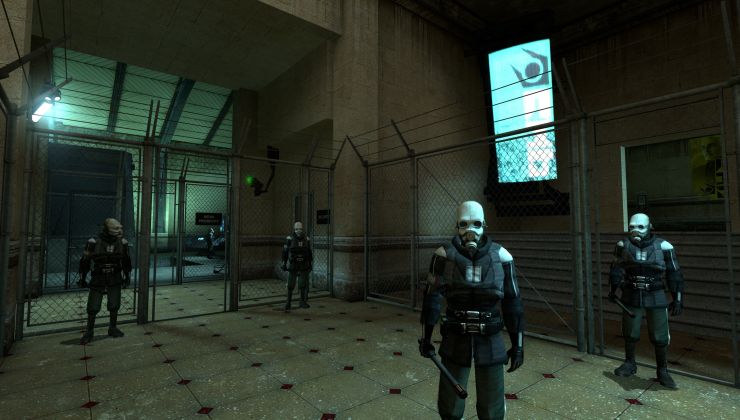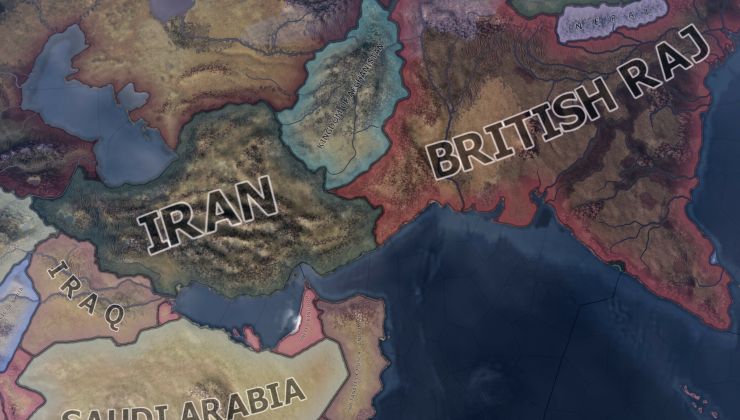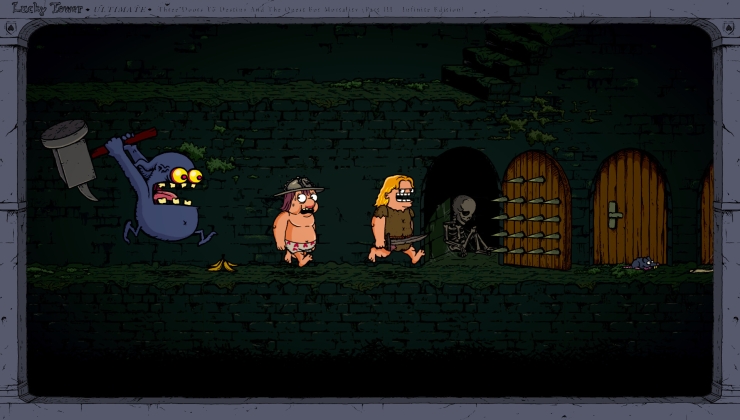Ready for some more upgrades? Today Fedora Linux 40 has now been officially released bringing with it big upgrades with GNOME 46, KDE Plasma 6 and lots more. Plus the usual assortment of upgrades and enhancements to all the core applications.
With this release you're getting Linux kernel 6.8, Mesa 24.0.5, Wayland out of the box for the KDE edition, the inclusion of PyTorch for deep learning, numerous security improvements and so much more across the bump in versions of KDE and GNOME with all the enhancements there like improved HDR support in Plasma, experimental Variable Refresh Rate (VRR) in GNOME and so on.
They also revived the Fedora Atomic Desktops branding which includes Fedora Silverblue, Fedora Kinoite, Fedora Sway Atomic and Fedora Budgie Atomic. So if you fancy a different type of Linux distribution perhaps give those a try that use either ostree or image-based provisioning that the Fedora team say isn't really "immutable" so it's being clearer going forward.
See more in the release announcement. And you can see the overview of changes for Fedora Workstation and Fedora KDE.
You might also want to read the interesting blog post titled "Notifications in 46 and beyond", which goes over the work involved in improving notifications in GNOME thanks to funding from the Sovereign Tech Fund.
From my experience, a good Linux distribution for gaming will be a distribution that will provide all packages needed for gaming:
- Proprietary and open source graphic drivers
- recent kernel
- wifi/bluetooth drivers
- wine/wine-staging
- 32 and 64 bits libraries
- Steam
- all emulators
- flatpak
- Lutris, Heroic...
- Gamescope, Mangohud
which manages dependencies efficiently: for example, if I install Lutris, also install wine, the 32 and 64 bit libraries, install the sdl libraries etc... So that the user subsequently does not have any messages error linked to a missing library when launching his games. And packages should be updated regularly.
At the moment I have successfully tested the following distributions for the game:
- Manjaro (ARCH)
- openSUSE Tumbleweed
This two distributions are rolling release so you always use recent and stable packages.
As an Ubuntu user for many years, I would not recommend this Linux distribution for gaming, I have experienced a lot of problems with unsatisfied dependencies, app packages not available, issues unresolved and its management of PPAs is complicated and degrades its stability.
Then I often encountered difficulties when updating from one version to another.
What about Fedora? I would be interested in your feedback.
Last edited by legluondunet on 23 Apr 2024 at 3:31 pm UTC
At the moment I have successfully tested the following distributions for the game:
- Manjaro (ARCH)
- openSUSE Tumbleweed
This two distributions are rolling release so you always use recent and stable packages.
You just said good things about Manjaro, bunker yourself, you are to be bombed.
Any distribution will work, but some will give a lot of trouble to get there, just take the easy path and those two are perfectly good options.
What distribution you will advice for gaming?Not Mint. I love Mint, I use Mint, but Mint is not a serious gaming platform--all its stuff is old, and although I'm sure there are ways to make all the relevant stuff be up to date it's probably a pain. Luckily for me I don't play the kind of game that needs you to be up to the minute.
What about Fedora? I would be interested in your feedback.
Haven't used Fedora in a while but it should be good also. It's what I would call semi-rolling - some packages like the kernel get updated for the same OS version and the OS releases don't take that long (I think every 6 months there's a new Fedora version).
What distribution you will advice for gaming?Not Mint. I love Mint, I use Mint, but Mint is not a serious gaming platform--all its stuff is old, and although I'm sure there are ways to make all the relevant stuff be up to date it's probably a pain. Luckily for me I don't play the kind of game that needs you to be up to the minute.
Genuine question: what issues would you run into using Mint? Mint is really the only distro I've used since coming from Windows and I haven't had any issues, though I stick almost exclusively to single player stuff if that's what you're referring to.
The only remotely gaming related issue I've had with Mint is that GOverlay's interface is unreadable.
I run a fresh kernel and the latest stable Mesa from a PPA, but I don't see why games would care about anything else. I suppose one might want to play around with gamescope and Wayland etc, and you'll get the new bells and whistles quicker on some other distro, but no game actually requires that stuff as far as I know. I think Mint is a perfectly fine distro for most gamers.What distribution you will advice for gaming?Not Mint. I love Mint, I use Mint, but Mint is not a serious gaming platform--all its stuff is old, and although I'm sure there are ways to make all the relevant stuff be up to date it's probably a pain. Luckily for me I don't play the kind of game that needs you to be up to the minute.
What distribution you will advice for gaming?
From my experience, a good Linux distribution for gaming will be a distribution that will provide all packages needed for gaming:
- Proprietary and open source graphic drivers
- recent kernel
- wifi/bluetooth drivers
- wine/wine-staging
- 32 and 64 bits libraries
- Steam
- all emulators
- flatpak
- Lutris, Heroic...
- Gamescope, Mangohud
which manages dependencies efficiently: for example, if I install Lutris, also install wine, the 32 and 64 bit libraries, install the sdl libraries etc... So that the user subsequently does not have any messages error linked to a missing library when launching his games. And packages should be updated regularly.
At the moment I have successfully tested the following distributions for the game:
- Manjaro (ARCH)
- openSUSE Tumbleweed
This two distributions are rolling release so you always use recent and stable packages.
As an Ubuntu user for many years, I would not recommend this Linux distribution for gaming, I have experienced a lot of problems with unsatisfied dependencies, app packages not available, issues unresolved and its management of PPAs is complicated and degrades its stability.
Then I often encountered difficulties when updating from one version to another.
What about Fedora? I would be interested in your feedback.
I was going to suggest trying Bazzite, Nobara or ChimeraOS but not sure if they fit the criteria you posted.
What distribution you will advice for gaming?
From my experience, a good Linux distribution for gaming will be a distribution that will provide all packages needed for gaming:
- Proprietary and open source graphic drivers
- recent kernel
- wifi/bluetooth drivers
- wine/wine-staging
- 32 and 64 bits libraries
- Steam
- all emulators
- flatpak
- Lutris, Heroic...
- Gamescope, Mangohud
which manages dependencies efficiently: for example, if I install Lutris, also install wine, the 32 and 64 bit libraries, install the sdl libraries etc... So that the user subsequently does not have any messages error linked to a missing library when launching his games. And packages should be updated regularly.
At the moment I have successfully tested the following distributions for the game:
- Manjaro (ARCH)
- openSUSE Tumbleweed
This two distributions are rolling release so you always use recent and stable packages.
As an Ubuntu user for many years, I would not recommend this Linux distribution for gaming, I have experienced a lot of problems with unsatisfied dependencies, app packages not available, issues unresolved and its management of PPAs is complicated and degrades its stability.
Then I often encountered difficulties when updating from one version to another.
What about Fedora? I would be interested in your feedback.
i think there are three distros that fit gaming requirement like that (based on fedora) chimera os, nobara, and bazzite. i personally use bazzite with legion go. as a user that want the os to just work without much change or no change at all at the root file system, immutable os is really great. since if there is a problem i can just rollback to the previous working date build. the downside is every update or rollback need to download full os size file.
Also, Mint is perfectly fine with gaming. Just use the Edge version, and add the Ubuntu drivers repo directly if you use an Nvidia card.
Still testing, but they haven’t shown up where I’ve experienced them in the past.
Edit:
Not with Steam set to GPU acceleration, apparently.
Last edited by Woodlandor on 23 Apr 2024 at 9:04 pm UTC
I suppose one might want to play around with gamescope, but no game actually requires that stuff as far as I know.Visual novels are a chore to play without Gamescope. Almost all of them have broken fullscreen, or you can't move the window at all, or... other stuff.
Localization teams tend to do some engine hacking to fix that stuff, but if you want to play the Japanese version, it's usually like that.
Wayland graphics flickering under Nvidia drivers seems to be fixed with the final release.Considering NVIDIA's new driver that fixes this isn't due to be out until halfway through May (and that's just their Beta driver, their production release won't be out for probably another month after that), explicit sync is very much still an issue on Wayland and will likely be until June sometime.
What distribution you will advice for gaming?Most of those dependencies can be installed via Flatpak, but Arch by far makes installing all of this stuff natively the easiest.
A friend tried to install Gamescope on Mint and openSUSE, but they had a lot of trouble compiling it. I managed to compile Gamescope on Fedora while cross-referencing the AUR package for the right dependencies, and after about half an hour, I got there.
Best way to install Gamescope is to install the Lutris/Bottles + Gamescope Flatpaks. Any distribution would work then, but you would need to use the Steam flatpak if you wanted to use Gamescope on Steam.
It isn't hard to install NVIDIA's proprietary graphics drivers on Fedora. What is difficult, in my experience, is installing patent-encumbered encoders/decoders, like the ones for H.264/H.265. You need to get those from RPM Fusion, and while I followed the commands exactly, they didn't work the first two times. I have no idea why they worked the third time. Although I think Fedora provides AAC in its own repositories? Anyway, OpenH264 was flat out broken for me (lots of fun artifacts), so I needed the FFmpeg decoder for H.264, which I could only get from RPM Fusion.
In case anyone was curious, [here's](https://www.via-la.com/licensing-2/avc-h-264/avc-h-264-patent-list/) the list of remaining patents for H.264. About three-quarters of them are expired now, and by the end of April, around 11/58 pages of patents will be left. Do note that quite a few of them can be disregarded, as the most widely used version of the H.264 standard is the High Profile, patents for which would need to have been filed in 2007 or before. A number of patents apply to later standard revisions which are not in nearly as wide use.
Further sources about patent expiration dates for H.264.[1][2] Also, maybe Unified Patents will invalidate a few more before they expire naturally! But probably not.
Other things that were annoying on Fedora (my experience was Fedora 38):
- No official Signal Desktop package. Where do you get it? From the unverified Flatpak? From openSUSE's OBS, which is maintained by a Fedora packager? From the COPR? Do you compile it yourself?
- Audacity is really out of date! You need to get the AppImage or the Flatpak, which in my experience are both broken in different ways.
- There's also no desktop package for Bitwarden...same reason as Signal: Fedora does not package Electron currently because it's hard.
- For some reason, fcitx5 was broken due to a Fedora-specific reason. I know this because I needed to run im-chooser, a Fedora-specific program, to fix the issue. I have no idea what the issue was, but at least I can write in Japanese now.
- When I tried to watch videos with mpv, they would crash suddenly a few minutes in. This happened reliably. You might be wondering why I didn't report it—well, the error reporting program also crashed and wouldn't produce a backtrace. GNOME-Abrt never successfully generated an error report for me.
That being said, I'm going to try Fedora 40/41 again on a computer I don't care about. And I'm going to try Fedora Workstation this time instead of the KDE Spin. I hope Fedora is the kind of distribution you can leave alone for a few weeks and not come back expecting breakage.
I'll probably replace it with Pop!_OS, eventually...
[1]: https://forum.doom9.org/showthread.php?t=184869
[2]: https://meta.wikimedia.org/wiki/Have_the_patents_for_H.264_MPEG-4_AVC_expired_yet%3F
Last edited by pleasereadthemanual on 23 Apr 2024 at 10:49 pm UTC
Wayland graphics flickering under Nvidia drivers seems to be fixed with the final release.
Still testing, but they haven’t shown up where I’ve experienced them in the past.
Edit:
Not with Steam set to GPU acceleration, apparently.
Crazy epileptic-warning flickering is indeed lessened greatly.
But it’s been replaced by frame dropping and hitching during any video playback.
Doesn’t present itself in most games.
Waiting on Nvidia to fix this.
I remember when Fedora 3 came out.
You mean Fedora *Core* 3. ;-) I remember when the rumors were swirling about "Red Hat 9" being the last version.
Wayland graphics flickering under Nvidia drivers seems to be fixed with the final release.
As already noted, that requires updated Nvidia drivers with explicit sync support; it also requires GNOME 46.1 (just released; is it already packaged for Fedora 40?). Your profile says you use KDE; I don't think explicit sync support is done for that yet: https://invent.kde.org/plasma/kwin/-/merge_requests/4693
I managed to compile Gamescope on Fedora
I haven't messed with it myself, but gamescope is in the default repositories, so very easy to install. Same for mangohud, goverlay, lutris, wine, and "almost" anything that is open source.
installing patent-encumbered encoders/decoders, like the ones for H.264/H.265. You need to get those from RPM Fusion
I prefer the "fedora-multimedia" negativo17 repository myself.
Audacity is really out of date!
Current version in the repo is 3.3.3; that is indeed out of date, but it's less than a year old, going by the official Audacity website. Oh, but 3.4.2 is there for Fedora 40 (I think 3.5 just released a few days ago?):
https://packages.fedoraproject.org/pkgs/audacity/audacity/
When I tried to watch videos with mpv, they would crash suddenly a few minutes in.
I assume that's from rpmfusion; you could try the negativo17 version.
Last edited by Phlebiac on 24 Apr 2024 at 4:04 am UTC
[So it is.](https://packages.fedoraproject.org/pkgs/gamescope/gamescope/)I managed to compile Gamescope on Fedora
I haven't messed with it myself, but gamescope is in the default repositories, so very easy to install. Same for mangohud, goverlay, lutris, wine, and "almost" anything that is open source.
I forget why exactly I compiled Gamescope from source on Fedora...there might have been a regression. Or I just didn't realise it was in the repositories!
One program I was surprised to find in Fedora's repositories was Cinelerra-GG.
Thanks for the tip!installing patent-encumbered encoders/decoders, like the ones for H.264/H.265. You need to get those from RPM Fusion
I prefer the "fedora-multimedia" negativo17 repository myself.
Fedora 38 had Audacity 3.1, which was missing several major improvements from recent versions (I forget what exactly, I didn't use it for long). This is really a program that should be kept up-to-date throughout the Fedora release rather than pinned to a certain version. I don't know if it's possible to import newer project files in older versions of audacity, but I collaborate with users from other operating systems on various projects, so that would be a requirement. Yes, 3.5 just came out this week.Audacity is really out of date!
Current version in the repo is 3.3.3; that is indeed out of date, but it's less than a year old, going by the official Audacity website. Oh, but 3.4.2 is there for Fedora 40 (I think 3.5 just released a few days ago?):
https://packages.fedoraproject.org/pkgs/audacity/audacity/
I noticed a few other programs on Fedora weren't kept up-to-date, like QBitTorrent, but that didn't matter as much to me as Audacity. Audacity 4.0 will be Qt-based, so hopefully that will make building it easier for Fedora in the future.
Will do, when I get around to trying out the new Fedora release.When I tried to watch videos with mpv, they would crash suddenly a few minutes in.
I assume that's from rpmfusion; you could try the negativo17 version.
Last edited by pleasereadthemanual on 24 Apr 2024 at 4:49 am UTC
I suppose one might want to play around with gamescope and Wayland etc, and you'll get the new bells and whistles quicker on some other distro, but no game actually requires that stuff as far as I know. I think Mint is a perfectly fine distro for most gamers.
A lot of old games (and perhaps even newer) crash when they loose focus "Alt+Tab". Or their resolution is limited and they can not run in fullscreen. Gamescope is necessary for this games and it is a solution we needed for a long time for Wine.
I remember I opened an issue on WIneHQ several years ago for this feature:
https://bugs.winehq.org/show_bug.cgi?id=39768
Last edited by legluondunet on 24 Apr 2024 at 5:12 am UTC
What about Fedora? I would be interested in your feedback.
I'll go a little deep here and talk about my experience with also Linux in general as someone who I wouldn't call myself technical but got tired of Microsoft's shit so here it goes:
I'm a month old Linux user and Fedora has been basically perfect, I don't want to hear about it that Fedora or KDE are too bleeding edge, unstable, unreliable, not gaming ready or whatever else I saw going around before doing the switch. It was too stable I got bored and learned how to install stuff like fsync-kernel and latest mesa drivers through copr repos, if a dumbass like me can do systemwide changes within a couple of weeks of using the os, while being on exams period so I didn't necessarily have lots of free time, then everyone can do it as well.
And I like package managers and DNF, while I'm exclusively a GUI person naturally, I now prefer package managers because I find them way more informative and easy to follow, this was the case for me for the last two years with winget on windows, and DNF is like a couple of generations ahead of that.
I would probably be considered a power user by now, but I don't feel like that's the case, I don't feel like I became a computer hacker or anything at all, this past month of "learning" how to use linux was smooth sailing, pretty much every problem or something that was simply new to me, just looking it up and I can easily follow along, it all feels very natural and things just make sense why they're the way they are, if they don't I just copy paste the commands. I think the concept of Linux being too difficult right now is just a consequence of my generation becoming too tech illiterate, everyone just uses their phones nowadays and have no clue how computers work, another thing is the social aspect which I also don't understand, if you use anything that even slightly deviates from the norm, people will think you're a nerd/hacker/strange person etc, or you're trying to be special and stand out, it's so weird.
The only thing I'm missing right now is proper VRR working, even on AMD, this is in fact a big bummer: for some reason whenever VRR kicks in, brightness flickering occurs, it depends on how bad the frame fluctuates but it's mostly not as annoying as you'd think, it's a Wayland thing I think I'm not sure, from what I learned this is something KDE will need to work on and it affects everybody? Correct me if I'm wrong I'd be happy to fix this.
No official Signal Desktop package. Where do you get it? From the unverified Flatpak? From openSUSE's OBS, which is maintained by a Fedora packager? From the COPR? Do you compile it yourself?
So the flatpak is not verified? I never realised that! is this worthy of concern? I don't know how this works, can one like check how the flatpak is built or whatever so one can be sure there were no modifications? What do you use to get Signal then if not the flatpak?
Last edited by Pyrate on 24 Apr 2024 at 6:35 am UTC











 How to set, change and reset your SteamOS / Steam Deck desktop sudo password
How to set, change and reset your SteamOS / Steam Deck desktop sudo password How to set up Decky Loader on Steam Deck / SteamOS for easy plugins
How to set up Decky Loader on Steam Deck / SteamOS for easy plugins
See more from me